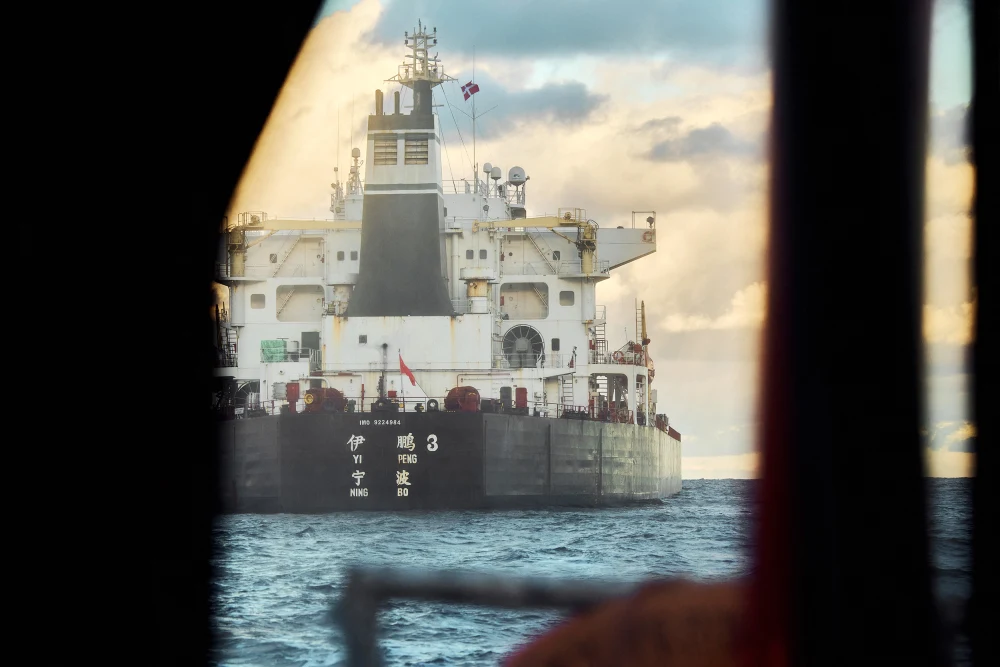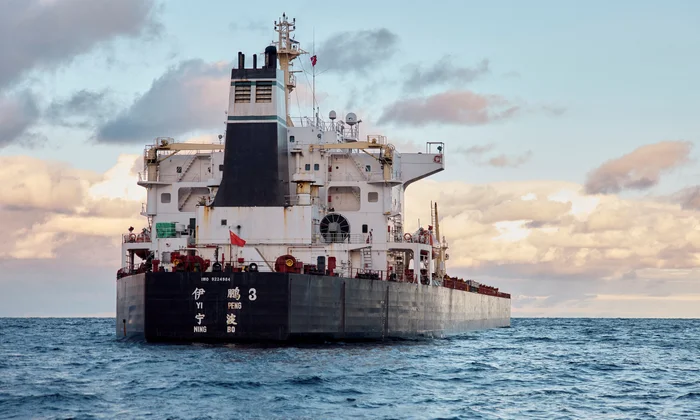Sweden has asked a Chinese vessel to return to Swedish waters to help facilitate an investigation into recent breaches of undersea fiber-optic cables in the Baltic Sea, Prime Minister Ulf Kristersson said Tuesday. He emphasized that he was not making any accusations.
On Nov. 17 and 18, two subsea cables—one linking Finland and Germany and the other connecting Sweden to Lithuania—were damaged within 24 hours, prompting German Defense Minister Boris Pistorius to suggest that the damage could be sabotage. Sweden, Germany, and Lithuania launched criminal investigations last week, focusing on the Chinese bulk carrier Yi Peng 3, which had left the Russian port of Ust-Luga on Nov. 15. A Reuters analysis of MarineTraffic data revealed that the ship’s coordinates matched the time and location of the cable breaches.
The ship is currently idle in international waters within Denmark’s exclusive economic zone, under close watch by Danish military vessels.
“From Sweden’s side, we have contacted the ship and China, requesting that the ship move toward Swedish waters,” Kristersson told a press conference, adding that doing so would help facilitate the investigation.
“We’re not making any accusations, but we seek clarity on what has happened,” Kristersson said. In response, China’s foreign ministry stated that communication channels with Sweden and other relevant parties remained “unobstructed” when asked about Sweden’s request.
“I would like to reiterate China’s consistent support in working with all countries to maintain the security of international submarine cables and other infrastructure in accordance with international law,” ministry spokesperson Mao Ning told reporters at a regular briefing on Wednesday.

Western intelligence officials from several countries have expressed confidence that the Chinese ship caused the damage to both cables. However, opinions differ on whether the incidents were accidental or deliberate. According to a U.S. official, U.S. Naval Intelligence believes both incidents were accidents, while officials from other countries have suggested that sabotage cannot be ruled out.
Katja Bego, Senior Research Fellow at Chatham House, told Reuters that while between 150-200 such breaches occur each year, the overwhelming majority are accidental. She noted that given the geopolitical tensions in the region, an investigation was likely necessary.
“Investigating incidents like this can take a long time, and even if the culprit is identified, proving intent is incredibly difficult,” she said. “Neither sabotage nor an accident can be ruled out at this point.”
Russia dismissed any suggestion that it was involved in the breaches, calling it “absurd.”
Kristersson expressed hope that China would respond positively to Sweden’s request to move the ship to Swedish waters. China’s foreign ministry reiterated on Monday that Beijing had maintained “smooth communication” with all parties involved.
Last year, a subsea gas pipeline and several telecom cables running along the Baltic Sea’s floor were severely damaged. Finnish police have said they suspect a Chinese ship may have dragged its anchor, causing the damage. However, investigators have not yet determined whether the 2023 incident was accidental or intentional.

